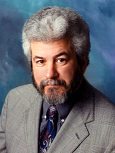 While it's well accepted that exercise builds muscle mass, did you know that mental exercise builds brain mass as well?
While it's well accepted that exercise builds muscle mass, did you know that mental exercise builds brain mass as well?
Recent research published in the Proceedings of the National Academy of Science is shedding new light on the capacity of our brains to grow. In a rather unique study, researchers at University College, London University compared brain scans from 16 male London cabbies with 50 men from the general population. Among the cabbies, an area of the brain termed the "posterior hippocampus" was significantly larger.
Of interest is the fact that the back portion of hippocampus is thought to be one of the principal brain areas responsible for navigation, learning and special memory. This finding is especially important as only one fifth of the 3500 applicants for London cab licenses actually passed a test that requires (on average) two years of study. The difficult challenge is learning the layout of the city.
One might assume that men who passed had larger "memory" areas initially and that on-the-job experience had little effect. This, however, is not the case. The researchers found the largest memory areas in drivers with the most time on the job. Experienced London cabbies pride themselves on working without maps, learning the streets and committing them to memory over the years.
As a neurologist, I find this research fascinating from a number of perspectives. The first is based upon our evolving understanding of aging and the brain. Until recent years, it had been widely accepted that loss of brain cells characterizes the normal aging process. It was previously understood that brain connections were established in the developmental phases of childhood and that after a peak, perhaps in one's twenties, neuronal (brain cell) dropout ensued. It now seems like there's real potential and rationale for continually expanding our memory banks in terms of ongoing brain development and evolution.
This research also has potential implications for determining the extent to which mental exercises can reverse or counteract the negative effects of stress on memory. As noted in a prior column, Bruce McEwen, PhD, of Rockefeller University in New York proposed that repeated stress can lead to the body's inability to turn off its major biological stress pathway; a factor that can directly lead to significant memory loss. His breakthrough findings were reported in a review article published in the New England Journal of Medicine on January 15th, 1998. He noted that the production of two substances, glucocorticoids (the body's natural steroids), and excitatory amino acid neurotransmitters (chemical substances that enable nerve transmission in key areas) directly result in atrophy or wasting away of nerve fibers termed dendrites in the hippocampus.
The question that surfaces is whether or not mental exercise can preserve or build our memory capacity even in the presence of significant stressors. Until we know for sure, this doctor is recommending a healthy mental workout each day along with exercise, proper diet and stress reduction. If you're looking for potential approaches, you just might consider spending some time:
- Reading books, newspapers or magazines
- Listening to educational audiotapes or radio programs
- Writing, reading, or memorizing poems
- Journaling
- Learning a new language
- Taking a class in a challenging subject
- Researching a new hobby
- Performing math without a calculator
- Planning a vacation by learning about a region
- Doing crossword puzzles
- Playing Scrabble or word games
- Developing your sense of humor by memorizing new jokes
A few minutes of challenging mental exercise each day just might help preserve what we cannot afford to lose. Our mind is too precious to waste. It's not too late to nurture one of our most precious gifts.
The old adage, "use it or lose it," has taken on new meaning based upon these remarkable findings. In the quest to preserve our health and to feel better, why not consider reestablishing a balance within yourself by setting new goals and expanding your vistas? And for the ultimate payoff, consider making a routine deposit in your memory bank - Mind Over Matter!
© 2000 Barry Bittman,
MD all rights reserved
Barry Bittman, MD is a neurologist, author, international speaker, inventor and researcher. He is the CEO and Director of the Mind-Body Wellness Center, 18201 Conneaut Lake Road in Meadville, phone (814) 724-1765, fax (814) 333-8662, www.mind-body.org.
Contact Dr. Bittman